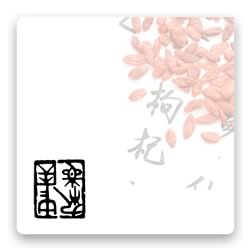We use cookies to make your experience better. To comply with the new e-Privacy directive, we need to ask for your consent to set the cookies. Learn more.
Using the NADA Protocol to Treat Combat Stress-Induced Insomnia: A Pilot Study
Did you know?
For the cost of 5 articles (students) or 10 articles (practitioners) you can buy a year's access to the entire Journal of Chinese Medicine article archive.
$6.00
VAT Exempt
In stock
SKU
JCM103-40
PURPOSE: Minimal research has been conducted on the use of acupuncture for the treatment of illnesses related to post-traumatic stress. The purpose of this pilot study was to investigate whether auricular
acupuncture treatment using the National Acupuncture Detoxification Association (NADA) protocol was effective in treating individual aspects of post-traumatic stress (specifically insomnia) in combat veterans.
METHOD: Using a randomised pre-test – post-test design with a delayed-treatment wait-list control, this study evaluated the effect of the NADA protocol on insomnia symptoms in five participants who were veterans of the United States armed forces. RESULTS: The NADA protocol was associated with statistically significant improvements in overall scores of both the Pittsburgh Sleep Quality Index (PSQI, p≤0.04 at post-treatment and follow-up) and Post-Traumatic Stress Disorder Check List - Military Version (p≤0.05 at post-treatment and follow-up). The PSQI showed a statistically significant improvement in sleep quality post-treatment (p≤0.05). In addition, reductions in re-experiencing (p≤0.04 at follow-up) and hypervigilance (p≤0.003 post-treatment) were statistically significant on the PCL-M. CONCLUSION: The NADA protocol may offer military medical personnel a simple treatment option for symptoms of combat-induced stress that could be used in any military setting. The treatment could be used preventively soon after combat stress or trauma exposure to reduce the risk of development of future symptoms. For service members, the NADA protocol can provide a way to begin treatment that does not expose them to feelings of vulnerability or fear of loss of reputation.
acupuncture treatment using the National Acupuncture Detoxification Association (NADA) protocol was effective in treating individual aspects of post-traumatic stress (specifically insomnia) in combat veterans.
METHOD: Using a randomised pre-test – post-test design with a delayed-treatment wait-list control, this study evaluated the effect of the NADA protocol on insomnia symptoms in five participants who were veterans of the United States armed forces. RESULTS: The NADA protocol was associated with statistically significant improvements in overall scores of both the Pittsburgh Sleep Quality Index (PSQI, p≤0.04 at post-treatment and follow-up) and Post-Traumatic Stress Disorder Check List - Military Version (p≤0.05 at post-treatment and follow-up). The PSQI showed a statistically significant improvement in sleep quality post-treatment (p≤0.05). In addition, reductions in re-experiencing (p≤0.04 at follow-up) and hypervigilance (p≤0.003 post-treatment) were statistically significant on the PCL-M. CONCLUSION: The NADA protocol may offer military medical personnel a simple treatment option for symptoms of combat-induced stress that could be used in any military setting. The treatment could be used preventively soon after combat stress or trauma exposure to reduce the risk of development of future symptoms. For service members, the NADA protocol can provide a way to begin treatment that does not expose them to feelings of vulnerability or fear of loss of reputation.
| Author | Christine Cronin and Lisa Conboy |
|---|---|
| JCM Issue | JCM103-40 |
Write Your Own Review
* Orders shipped outside of Europe are eligible for VAT relief and will not be charged VAT.

